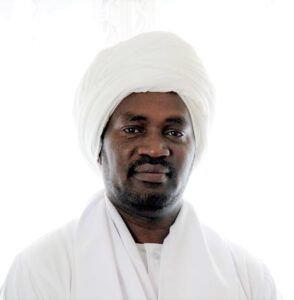 From the very early period soon after the collapse of the Khilafah (caliphate), Muslims have misunderstood Shari’ah; this may be attributed to rule of brutal regimes (with a few exceptions) different parts of the Muslim world
From the very early period soon after the collapse of the Khilafah (caliphate), Muslims have misunderstood Shari’ah; this may be attributed to rule of brutal regimes (with a few exceptions) different parts of the Muslim world
The rational of Al-Khilafah Al Rashida (righteous caliphate) started from the Prophet’s (s) time, and it ended with the death of ‘Ali ibn Abi Talib (r). When the Umawi dynasty ushered in their reign soon after, the era of political despotism in Islamic history was initiated. Through the course of history, many tyrannical governments reigned the Muslim world; they imposed certain aspects of Islamic law. In the process, these regimes ignored many other important aspects of Islam, such as justice, freedom, and rights. This selective approach continued over the centuries.
In contemporary Arab states, the dictatorial governments (with a very few exceptions) forced religious authorities to portray Islam in a particular manner; they did so as they interpreted it and not as Islam should be comprehended as a ‘way of life’. These religious authorities, in fact, played a key role in legitimising the tyrannical regimes’ rule. Being on the autocratic rulers’ payroll, these shuyukh turned a blind eye to the looting of resources in the Muslim world. The world witnessed the emergence of political elites, family monopolies, and military cartels that took advantage of their countries’ resources, while the majority of their societies are left living in abject poverty and ignorance.
Considering these happenings in the Muslim world and when reflecting on the status of Islamic law (Shari’ah), none of the Muslim societies can refer to the three major imperatives (namely, freedom, rights, and justice); concepts that give true meaning and sense to the word Shari’ah. The first of the three is: freedom; it word means that an individual exercises his/her free will to determine his/her own choices in life, including to be Muslim or not.
For this reason, Islam lifts the burden of responsibility from the minor, the insane, and the one sleeping, let alone the one who is in captivity or whose freedom is usurped. No person is accepted into the fold of Islam ‘as the right way of life’ without being ‘free to choose.’ This concept is thus one of the key imperatives of Shari’ah. The difference, however, between freedom in Islam and freedom in the Western secular systems is that there are boundaries; for if everyone is to exercise absolute freedoms, then we will end up trespassing other people’s rights. In this regard, Islam puts a limit to individual freedoms lest he/she infringes on the societal ‘common good.’
The second imperative is justice. Islam considers ‘justice’ as an absolute value and is critical to societal prosperity, peace and safety. The Qura’nic verse that talks about justice is amazing! “O you who have believed, be persistently standing firm in justice, witnesses for Allah, even if it be against yourselves or parents and relatives. Whether one is rich or poor, Allah is more worthy of both. So follow not [personal] inclination, lest you not be just. And if you distort [your testimony] or refuse [to give it], then indeed Allah is ever, with what you do, Acquainted.” [Quran 4:135].
The third imperative is the fulfilment of ‘rights;’ not only the rights of people, but also the rights of animals and all other creatures. Khaliph Omar (r) said: “If a mule in Baghdad stumbled on the road, I know Allah will ask me for it because I did pave the road for it.” Justice means that all citizens in the state must be equal before the law, and nobody is above the law, no matter what position they occupy in society.
The third imperative is the issue of ‘rights.’ Whatever is right by nature must be fulfilled, meaning that the state should fulfil its obligations towards all the citizens; and the citizens should fulfil their obligations towards the state. So, these are three significant imperatives without which one cannot talk when discussing Islam in relation to the state.
Shari’ah organises society, in terms of relationships, rights, obligations, and social interactions. In a nutshell, the reference is to mu’amalat (that is, transactions). In other words, Shari’ah considers society as its central focus and any Muslim government is considered but a servant of society; it is subject to checks and balances without any sacredness associated with it. A ruler is thus subject and open to criticism; so, questioning his(/her) rule if need be and this even includes a possible dismissal from office.
The responsibility of the state in Islam is not to ‘propagate’ Islam, for this is the role of society. The state’s responsibility is to maintain safety, apply justice, and fulfil its obligations to all its citizens; especially in the way the citizens want. In other words, the state acts according to the will of society, not the will of an elite, be it military, familial, or political.
There is a lot of talk these days about Islam in the context of the state among the Muslim jurists. The version of Islam, however, portrayed by repressive regimes remains a dominant force; this is in the mindset of many Muslims and non-Muslims. So, when we talk about Shari’ah, we do not converse about ‘hudud’ (penal laws), we talk about the organisation of society at large in everything pertaining to their life.
(written by Shaykh Ramadan Ahmed Birima, Executive Director of Verulam Islamic Institute.)


